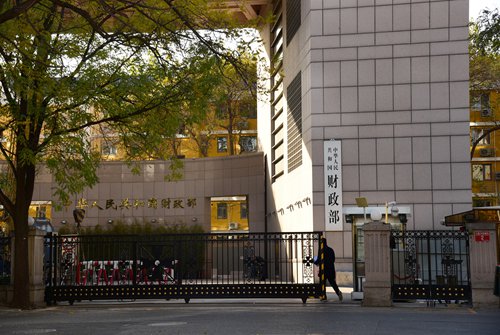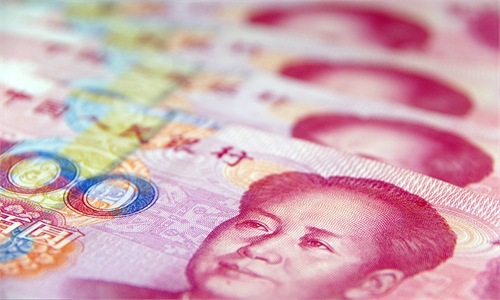China to phase out tax, fee reduction policy, meted out in 2020 as COVID-19 relief: Ministry

The Ministry of Finance in Beijing Photo: VCG
China will gradually phase out tax and fee reduction policies that were launched last year to buffer against the COVID-19 epidemic, Assistant Finance Minister Ou Wenhan said on Wednesday.
The country is set to extend some policies such as value-added tax (VAT) relief for small-scale taxpayers to maintain necessary support for the economy's recovery, Ou told a press conference, adding that interim contingency policies concerning viral prevention and containment and aiming to ensure supplies would be discontinued as they are due to expire.
Tax and fee cuts as part of efforts to steady the economy throughout last year have to largely run their course this year, as it's time that a robust economic rebound necessitates efforts to avoid overheating, observers said.
The economy would have recorded an even stronger expansion last year if the country had not raced to meet environmental goals, Tian Yun, vice director of the Beijing Economic Operation Association, told the Global Times.
.
China's economy grew 2.3 percent in 2020, underpinned by effective virus containment measures.
The economic recovery is expected to gain traction this year, with the IMF on Tuesday raising China's growth projection to 8.4 percent in 2021, up 0.3 percentage points from the fund's January forecast.
Tian put this year's GDP growth at 9 percent. An apparent change in fiscal policy in the fourth quarter, which resulted in the 2020 budget not being fully used, would be followed by a neutral fiscal stance this year, Tian said.
The country beefed up fiscal spending in 2019 amid trade tensions with the US, with ramped-up investment in new infrastructure ranging from 5G gear to artificial intelligence to ultra-high voltage power transmission. That situation heightens the urgency of taking action now, according to the economist, so the economy won't overheat.
The IMF also projected a "mild tightening" this year after a large fiscal expansion in 2020.
China's success in containing the virus and subsequent strong economic growth momentum were factored into the country's goal-setting for this year's deficit-to-GDP ratio.
The ratio was set at around 3.2 percent for 2021, according to the central government's work report delivered to the National People's Congress in March. This compares with a deficit target of more than 3.6 percent of GDP last year. Additionally, no COVID-19 special government bonds will be issued this year.
In a research note sent to the Global Times, Song Yu, chief China economist at the BlackRock Investment Institute and chief representative of its Beijing office, wrote that this year's fiscal target of around 3.2 percent is "a slightly dovish signal" as the target is usually below 3 percent. The 3.2-percent target implies merely "a partial normalization of fiscal policy."
Meanwhile, the country will continue to implement systemic tax reduction policies including reduced VAT rates, VAT refunds, and special additional deductions of individual income taxes, according to Ou.

